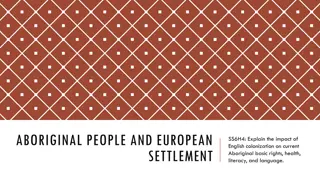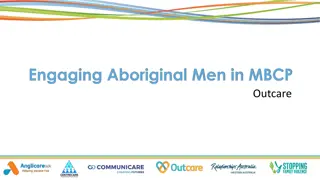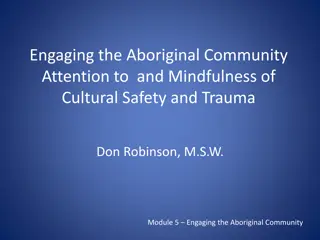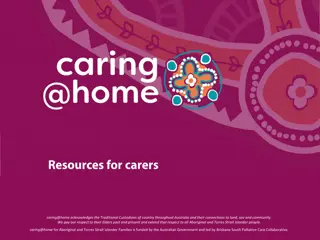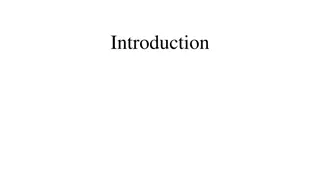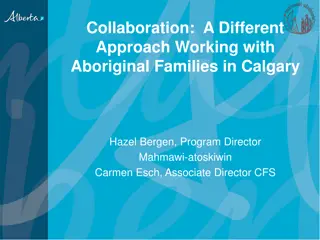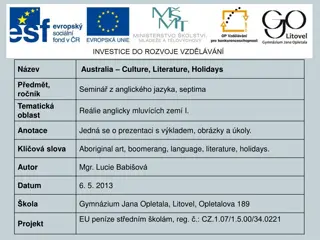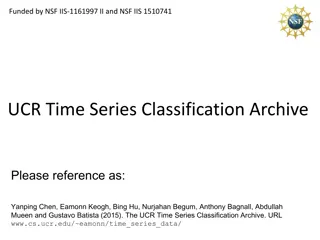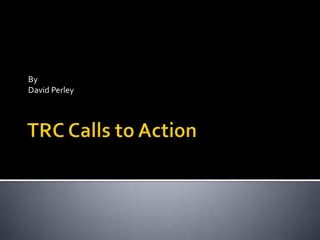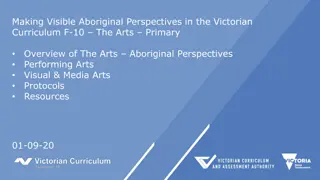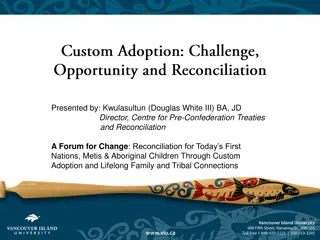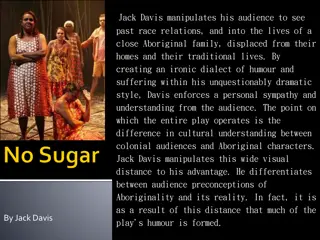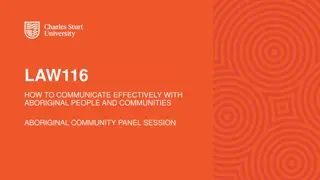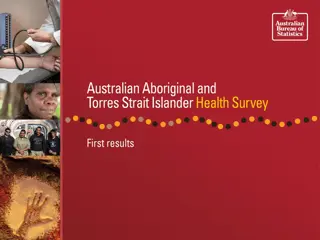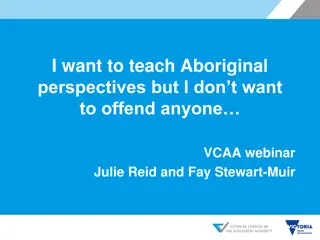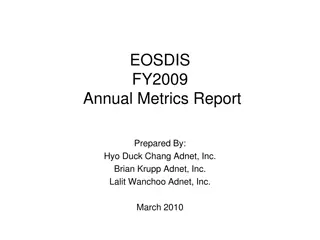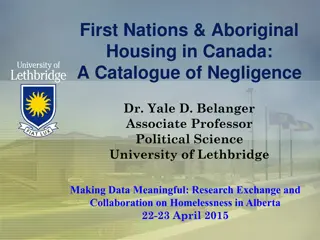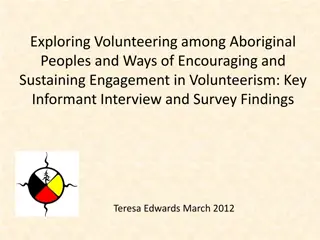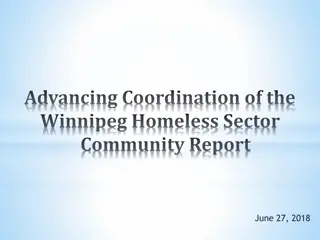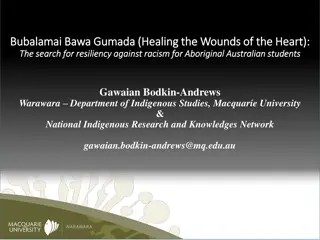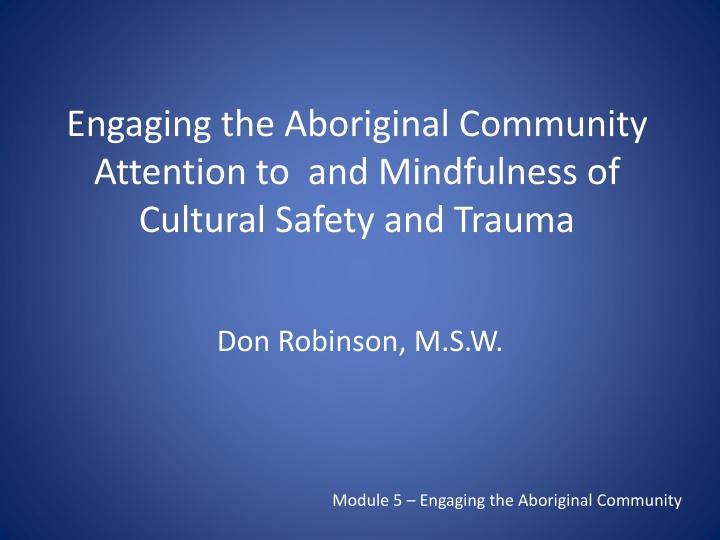
Impact of Trauma on the Aboriginal Community
Explore the importance of cultural safety, trauma awareness, and historical context when engaging with the Aboriginal community. Learn about the effects of colonization, complex trauma, and survival strategies utilized by individuals dealing with traumatic experiences.
Download Presentation

Please find below an Image/Link to download the presentation.
The content on the website is provided AS IS for your information and personal use only. It may not be sold, licensed, or shared on other websites without obtaining consent from the author. If you encounter any issues during the download, it is possible that the publisher has removed the file from their server.
You are allowed to download the files provided on this website for personal or commercial use, subject to the condition that they are used lawfully. All files are the property of their respective owners.
The content on the website is provided AS IS for your information and personal use only. It may not be sold, licensed, or shared on other websites without obtaining consent from the author.
E N D
Presentation Transcript
Engaging the Aboriginal Community Attention to and Mindfulness of Cultural Safety and Trauma Don Robinson, M.S.W. Module 5 Engaging the Aboriginal Community
Engaging the Aboriginal Community I want to acknowledge the Elders and knowledge keepers of the First Nations in this territory. It will be important to involve the key stakeholders in the surveying process Key stakeholders include Aboriginal organizations Elders, those serving the diverse First Nations, women, youth, LGTBQ
Engaging the Aboriginal Community These representatives will bring cultural knowledge to the table They will bring their knowledge of the people being surveyed They will know the history of the people of this territory and have relationships with those who are homeless
Attention to the Past: Colonization Many people who are homeless have had traumatic experiences, often in childhood Many people went to residential schools where they lost their identity and culture Returning home, the survivors transmitted their pain and hurt to the next generations We also had the process known as the 60 s Scoop where many children were apprehended from their families/communities
Cultural Safety and Trauma Each person has a story that transcends our stereotypes, and frames of reference Surveyors will hear some of their stories and will need to listen with compassion In Winnipeg, we had people with lived experience of homelessness describe trauma They describe complex trauma
Defining Complex Trauma Complex psychological trauma results from exposure to severe stressors that: 1.Are repetitive & prolonged 2.Involve harm or abandonment by caregivers 3.Occur at developmentally critical times (when brain development is occurring) Source: workshop by Lori Haskell (2010) on post traumatic stress disorder 6
Attention to Survival Strategies The person may use mind altering chemicals to cope with traumatic memories Dissociation a mind/body disconnect Self-Harm (mutilations) Serious Depression and Suicidality Denial of the past traumas Avoiding/numbing responses
The survey may trigger Reminders of past events. Feeling powerless or a lack of control. Separation or loss. Feelings of vulnerability or rejection. Feeling threatened or attacked. Loneliness. Reminders of losses and unresolved grief 8
Cultural Safety: LGTBQ In Winnipeg, Alaya McIvor reminded us that we should respect the person and ask what pronoun he or she wants to be known by. She reminded surveyors to put away their hats (their usual identity) social worker, professional, etc and just be at one with the people.
Respect and Understanding Sometimes we hear about sex workers Alaya reminded us that men and women are not on the Street by choice and are often victimized and sexually exploited by people with power over them Self-Reflection: Understanding your strengths and weaknesses and why this is important to be aware of when doing the work you do
Attention and Mindfulness As the people doing the surveys, one can get absorbed in the task of obtaining answers to the questions and forget the human connection. We need to respect the human being in front of us as we asking for their wisdom and truth We are asking with humility to share with us their knowledge of life as they experience it
Attention and Mindfulness We may need to put the pen down when stories emerge we need to listen and hear the story with compassion and non-judgment We also need to respect and have patience when people don t want to participate in the survey respect their space We need to understand the miles they have walked - empathy

